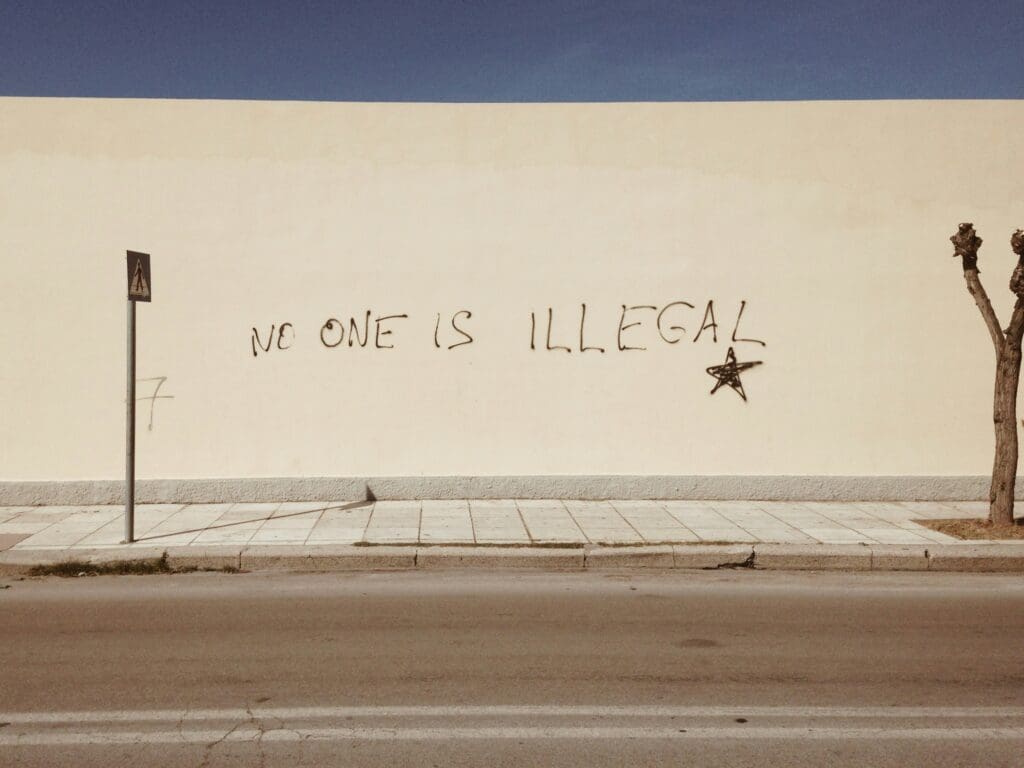A Nation at a Crossroads: Immigration, Minority Rights, and the Return of Trump

The political environment of the United States has taken a sharp turn as former President Donald Trump returns to office, bringing with him a wave of policies that echo his past administration—policies that many fear will roll back the rights of marginalized communities, including immigrants, women, Black and Hispanic populations, and LGBTQ+ individuals. The nation stands at a crossroads, grappling with a resurgence of conservative policies that threaten decades of progress in social justice and human rights.
The Surge in Deportations and the War on Immigration
One of the most critical matters in Trump’s return is his renewed crackdown on immigration. Reports have already surfaced of mass deportations being planned, with ICE (Immigration and Customs Enforcement) ramping up raids in predominantly Hispanic immigrant and Black communities. Many families who have lived in the U.S. for years—working, paying taxes, and contributing to the economy—are now living in fear of being separated.
For me, this fear is not abstract—it’s personal. I have family members who are immigrants in this country, and every time I see another headline about raids, deportations, or stricter immigration policies, my heart sinks. The uncertainty of not knowing whether my loved ones will be safe tomorrow or if their lives will be uprooted at a moment’s notice is a reality that far too many people like me are facing. The stress of living in a country where policies change overnight, putting the lives of those you love in jeopardy, is overwhelming. It’s a silent fear that lingers in every conversation, every phone call, every piece of news that reminds us that we are at the mercy of a system designed to exclude, not protect.
Trump’s immigration stance has always been rooted in nationalism, portraying immigrants as threats rather than contributors to American society. His previous term saw family separations, children in detention centers, and a notorious attempt to end DACA (Deferred Action for Childhood Arrivals), which protects undocumented individuals brought to the U.S. as children. Now, with his return, the same harsh measures are resurfacing, leaving countless individuals—including my own family—vulnerable.
The consequences extend beyond deportation. Restrictive visa policies and limits on asylum applications are closing doors to those fleeing persecution, violence, and poverty. The U.S. has long been seen as a beacon of hope for immigrants, but that light is dimming under policies rooted in exclusion rather than compassion.
The Dismantling of Minority Rights: Who’s at Risk?
Beyond immigration, Trump’s second term is already proving to be a battleground for civil rights. From healthcare access to voting rights, the policies being put forth are disproportionately harming minorities, particularly:
Women: The rollback of reproductive rights, including efforts to impose a nationwide abortion ban, threatens bodily autonomy. The right to make medical decisions is being stripped away, forcing many into unsafe conditions.
Black and Hispanic Communities: Criminal justice reform efforts are being reversed, voter suppression laws are tightening in swing states, and economic disparities are widening due to cuts in social programs. The Black Lives Matter movement, which gained traction during his first term, faces increased hostility and legal restrictions on protests.
LGBTQ+ Individuals: The previous administration targeted trans rights, banned LGBTQ+ discussions in schools, and pushed religious exemptions that allowed discrimination under the guise of faith-based beliefs. With Trump back, these issues are escalating, with potential bans on gender-affirming care and protections for LGBTQ+ workers being revoked.
The Resistance: What Comes Next?
Despite the alarming policies being implemented, resistance movements are growing stronger. Activists, organizations, and everyday citizens are fighting back through protests, legal battles, and grassroots organizing. The power of social media is amplifying voices that refuse to be silenced, and young voters—who played a crucial role in the last elections—are mobilizing against policies that threaten their futures.
Communities are coming together, creating support networks for immigrants facing deportation, raising funds for reproductive health access, and demanding accountability from lawmakers. The courts are also a battleground, as civil rights groups challenge unconstitutional policies at every level.
As someone with family members directly affected by these changes, I refuse to be a bystander. It is our duty to stand up, not just for ourselves, but for those who may not have the power, platform, or privilege to do so. Silence in times like these is complicity.
The Urgency of Action
As history has shown, rights are never guaranteed—they must be fought for and protected. While Trump’s return may signal a wave of regressive policies, it also ignites a renewed commitment to justice. Those who believe in an equitable society must remain vigilant, informed, and engaged.
For me, this is not just political—it’s personal. It’s about my family, my friends, my community. It’s about making sure the country I live in doesn’t turn its back on the very people who helped build it.
The fight is far from over. Now more than ever, we must stand up, speak out, and take action to ensure that America remains a place of opportunity and freedom for all, not just a privileged few.

